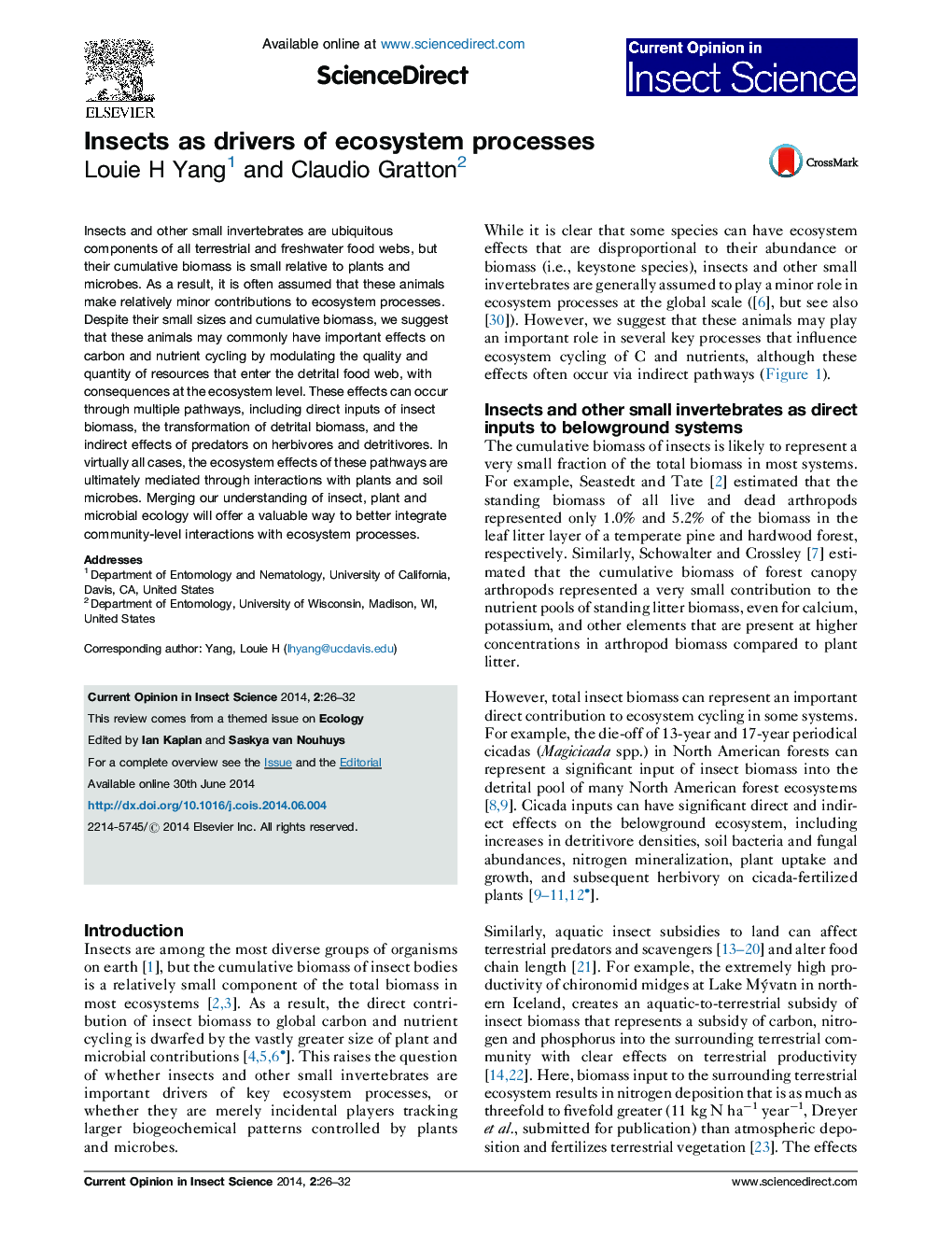| Article ID | Journal | Published Year | Pages | File Type |
|---|---|---|---|---|
| 4508322 | Current Opinion in Insect Science | 2014 | 7 Pages |
•In some instances, insects can be large direct inputs of biomass to the detrital pool.•Insects and other small invertebrates transform biomass and alter decomposition rates.•Predatory arthropods can affect trophic cascades in ‘brown’ food webs.•Predatory arthropods can create an environment of risk that ultimately alters ecosystem functions.
Insects and other small invertebrates are ubiquitous components of all terrestrial and freshwater food webs, but their cumulative biomass is small relative to plants and microbes. As a result, it is often assumed that these animals make relatively minor contributions to ecosystem processes. Despite their small sizes and cumulative biomass, we suggest that these animals may commonly have important effects on carbon and nutrient cycling by modulating the quality and quantity of resources that enter the detrital food web, with consequences at the ecosystem level. These effects can occur through multiple pathways, including direct inputs of insect biomass, the transformation of detrital biomass, and the indirect effects of predators on herbivores and detritivores. In virtually all cases, the ecosystem effects of these pathways are ultimately mediated through interactions with plants and soil microbes. Merging our understanding of insect, plant and microbial ecology will offer a valuable way to better integrate community-level interactions with ecosystem processes.
